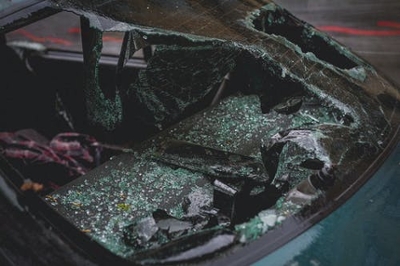Car accidents are unfortunately common with over 6 million occurring per year in the US. These can happen at any time to even the most careful drivers, and they’re incredibly stressful at the moment and potentially for long afterward. It can be hard to think straight immediately following an accident as you may be hurt, overloaded with adrenaline, or angry at the other driver. As tough as this can be to remember, the best thing you can do after an accident is remain calm. Assuming you’re relatively OK after the fact, the process for dealing with most accidents is about the same. Follow these guidelines to collect information and effectively deal with the aftermath of a car accident.
Check For Injuries
This goes for yourself, first and foremost. If you’re still conscious and not in terrible pain after an accident, that’s a good sign. Still, it’s important to take some deep breaths and examine the situation. Move slowly to make sure nothing is broken, and check yourself for bleeding or injuries that need attention. It’s a great idea to keep a first aid kit in your car for this reason. Once this is done, you can check on any passengers as well as the other party to see if anyone needs immediate care. Call 911 if necessary, and then inform the police of the accident.
Protect And Survey The Scene
Once injuries are dealt with, you’ll need to do what you can to protect the scene until the police arrive. If vehicles are still operational, you can move them out of the main road and onto the shoulder or other safe areas. If the accident occurred at night and anyone involved has flares or reflectors, using these is a good idea. You can also go ahead and start collecting evidence of the scene, such as photographs of the damages to your car.
You’ll also want to gather all relevant information for insurance purposes. This includes making a record of what happened at the accident and collecting the information of all other drivers involved. You’ll want vehicle makes and models, as well as insurance information from the other driver(s). If possible, photographic evidence should include all damages to vehicles and property as well as license plate numbers.
Seek Medical Attention
Naturally, you won’t need to be told to be treated if you suffered clear injuries during the accident, but doing so as soon as possible is important for your recovery as well as any potential injury case that may surface later. Getting immediate attention proves that your injuries were suffered due to the accident and no other causes, which can be important.
Even if you aren’t showing obvious signs of injury, you should still get checked out. Injuries like concussions may not show clear signs early on, so it’s important to be sure. You can look around to find the best hospitals if you want, but you should never wait longer than 72 hours to be checked.
Report The Accident
You’ll need to notify your insurance company about the accident as soon as you can. Many policies require immediate reporting and full cooperation will all following procedures. Depending on the circumstances, you may wish to make a claim for medical coverage, or your rates may change.
Seek Counsel
You may need legal assistance following an accident if you have an insurance claim denied or wish to pursue a personal injury case. In such instances, you’ll need the services of someone like this accident attorney in Jersey City, NJ. Consultations are generally free, so you’ll risk nothing by speaking to a lawyer. To ensure as smooth a process as possible, you should bring all relevant materials to the consultation. This includes evidence of the scene, medical records, witness reports, insurance forms, or anything else you believe would be helpful.
Dealing with an accident is never easy, but taking each step calmly and deliberately is the best way to move past it.
Content Provided by Scholarship Media


